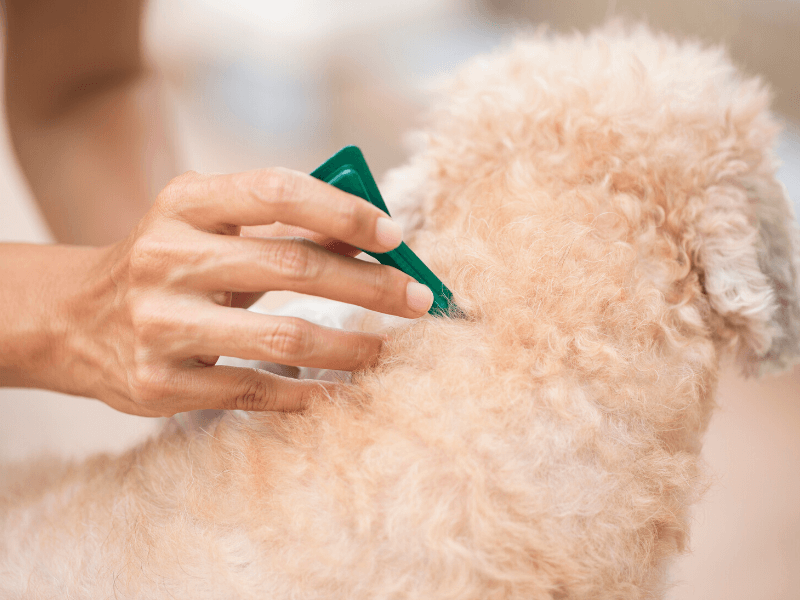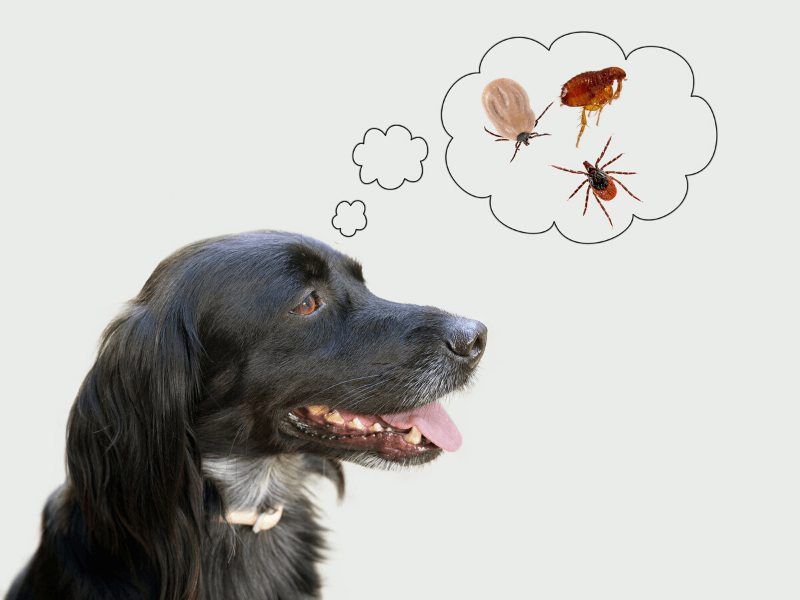Spring is finally here!
As the weather warms up, many people start thinking more about the creepy crawlies their pets can get. Things like fleas, ticks, and heartworms are at the top of a lot of peoples’ minds this time of year.
Here are some things to consider when looking for flea, tick, and heartworm prevention:

Safety and efficacy:
Most of the preventative medications on the market are both safe and effective… but not all. Some of the over the counter medications for fleas and ticks are not so safe. There are also some that just don’t do a whole lot of good and are a waste of money. It’s best to consult your vet on what products they recommend. In general, skip the sprays and “natural” products. They aren’t very effective and aren’t actually any safer than those products your vet recommends. Using ineffective products delays appropriate treatment and allows fleas and ticks to flourish which makes the situation worse.

Ease of administration:
Another area for treatment failure is lack of compliance. This may be due to forgetting doses, not following through with vet recommendations, or maybe your pet refuses to take their preventative medication. There are so many options for the prevention of fleas, ticks, and heartworms which is great but can be overwhelming. There are chewables (monthly and tri-monthly), topicals, and injectable medications. Finding what works for you and your pet is one of the most important aspect to that preventative being successful. If you forget doses or your pet throws up a pill outside or they go swimming right after you apply a topical medication, those meds won’t work.
Be honest with your veterinarian about what challenges you’re facing. If Fluffy won’t take her pills or you know you’re apt to forget doses or you can’t afford the current prevention 12 months a year, tell your vet. We’re human and face a lot of those same problems with our own pets.
I’m busy and time gets away from me easily so monthly heartworm prevention doesn’t work for my lifestyle. I also have a dog who won’t take the dang pills no matter how tasty they’re supposed to be. I can’t break it into small enough pieces to put into a pill pocket without him being able to eat around it. So, for me, injectable heartworm prevention is necessary. But maybe for you, cost is a huge limiting factor so maybe we use a no-frills generic chewable preventative for your pets.
Again, we have options and while the number of options may seem overwhelming, if you discuss what your needs are with your vet, they can guide you to what is likely going to work best for you. And if it’s not working, let your vet know so you can pivot and pick something else.

Convenience:
Let’s be straight: if it’s not convenient, you won’t do it. Right? I’m the same way. If something is going to take me a bunch of extra steps, it will usually get pushed to the bottom of the to-do list which means it might not get done.
That’s why it’s important to factor in what will be convenient to do to keep your pet protected 12 months out of the year. Fleas are nasty. Ticks spread disease. And heartworms are deadly. Cases of heartworms are on the rise. We can’t just put off doing what’s right for our pets.
We’ve all heard over and over how important heartworm, flea, and tick preventative is to protect our pets. So why aren’t they all covered?
What would be most convenient for you? Is it convenient to stop into the vet hospital once a month to pick up doses? Not for most people. Is it convenient to purchase 6 or 12 months at a time? If you’re like me, it will go into a cabinet and quickly forgotten. Even with all of the reminders on my phone or calendar, it still doesn’t get done because my schedule is wacky and I don’t always get the reminders when I am able to give the medication.
That’s why we recommend ProHeart12 injections for many of our patients. It’s safe, easy, and your pet is protected for 12 months. For flea and tick prevention, we recommend utilizing our online pharmacy which will ship you a single dose to your home once a month. You get the dose in the mail, you give it. Done. Easy. If you prefer a chewable heartworm preventative, it can be set up the same way.












